- Home
- Keith Douglass
The Art of War c-17 Page 2
The Art of War c-17 Read online
Page 2
“Afternoon, sir,” Tombstone answered, even more puzzled now. It wasn’t like his uncle to waste time on pleasantries, not on a Navy phone. “To what do I owe the honor?”
“There’s no way to say this to make it easy, Tombstone,” his uncle began after a moment. “It’s not about Tomboy or anything like that. But the selection board just met, and while I can’t release the results yet, it doesn’t look promising. You might give some thought to what you’re going to do after you leave the Navy.”
Tombstone sat down hard, stunned. Sure, it had always been a possibility. As a pilot, and later as an admiral in command, he had always been a bit more daring than his peers, at times resorting to outrageous and unconventional methods to achieve results.
And results were what counted, right? None of the rest of it mattered as long as you got results.
Or so he had always thought. His uncle had cautioned him several times that the rest of the Navy didn’t necessarily see it that way. Sometimes a team player was more valuable than an officer who could get down and dirty with the enemy.
Yeah, there’d been a chance he was stepping in it, but he hadn’t expected this, not really. Even though he and Tomboy had talked over their options, he never truly believed that he’d have to face the day when he would be forced to retire. On some level, he had always thought he would die in the Navy and never have to make the transition to civilian life.
“I know this comes as a shock, Stony,” his uncle said, as though reading his mind. “And for what it’s worth, you’re not alone in this.”
“When?” Tombstone asked, surprised to find his voice slightly tight. “Not right away, I hope.”
“No, not immediately. But soon. We have six months.”
It took Tombstone a moment, but then the significance of his uncle’s pronouncement “we”, hit him like a sledgehammer. “We? Surely you don’t mean…” He broke off, not entirely sure he could keep his voice steady.
When he answered, his uncle’s voice was peculiarly gentle. “Yes, I said we. While the board can’t force me to retire, there were certain strong… recommendations… from other quarters that I give the matter serious thought.”
“Who? JCS? The president?” If anything, the revelation that his uncle would also be retiring made the situation even harder to bear. Because, at some level, he thought that his uncle’s predicament was probably due in part to allowing his favorite nephew free rein in fighting the Navy’s battles. “Oh god, I’m so sorry to hear this.”
There was a long silence, and then his uncle finally spoke. “I’ve had a day or two to get used to the idea. When the subject was first broached with me, I couldn’t believe it. But since then, certain… opportunities… have come to light. And for what it’s worth, I think you may be interested in them.”
“Opportunities? What do you mean?”
“This is so secret, Stony, I can’t even begin to assign a security classification. And there’s not much I can tell you, not even on this line. But there are certain operations within the U.S. government that don’t suffer the same restraints as we have in the Navy. There are ways of achieving objectives, and some very different departments to take care of them. I’ve been asked to head up one of them — and if you’re interested, I liked you onboard as my chief of staff.”
Tombstone leaned forward and put his hands on his forehand, wedging the telephone receiver between his shoulder and his ear. “I have to think about it. And Tomboy… I’ll have to talk it over with her.”
“You can’t. Tomboy isn’t cleared for any of this. If you agree, you’ll appear to be working for a defense contractor. And that’s all that Tomboy will ever know.” His uncle’s voice took on an urgent note. “I promise you, Stony, we can make a difference in the world. We can keep people in the battle group from getting killed, make missions safer. No dirty tricks, nothing that you wouldn’t approve of — you think I would take the job if there were? And…” His uncle paused, as if to make sure he had Tombstone’s full attention. “It would require a fair amount of flying on your part. Tomcats, mostly, but other aircraft as needed. There will be funds to bring you up to speed on anything that we need to have you fly. How’s that sound?”
Hope leaped in Tombstone’s heart. He realized that his anguish over the prospect of retirement had been primarily related to the fact that he would never fly again. Oh, sure, he had his Pitts Special, and he dearly loved it. But there was nothing that could compare to the sheer power and grace of a Navy combat fighter. To contemplate the possibility of never again strapping a Tomcat onto his ass and soaring wild and free in the air was almost more than he could bear.
“Flying?” he asked, a new note of hope in his voice.
His uncle chuckled slightly. “I thought that would get your attention. No uniforms, no regulations, no squadron CO telling you what you can and can’t do. It would all be up to you. And as the operation expands, you’d have other pilots under your command. But the choice of who flies what missions, how much flying you’d do yourself, would be completely up to you.”
“But what sort of missions? How can I possibly make a decision based on what you’ve told me?” Tombstone asked.
“We’ll talk more when you get back to D.C. For now, keep your retirement confidential. The message will be out in a few days. Then you can start talking about your upcoming retirement, but not a word about this. Keep your plans vague. Say that you’ll look for work in the defense industry. Not that you need to — I know that your investments over the years have netted you a tidy nest egg. Between that and Tomboy’s active duty pay and your retirement pay, you could live quite comfortably without ever having to work again. But I have a feeling that that won’t be enough for you. It never has been.”
“It may be a while before I’m back in D.C.” Tombstone said.
“Not as long as you think.” Again, the peculiarly gentle note in his uncle’s voice. “This is Batman’s show, Stony. I’m going to recall you, give him free rein. It could be that someday he’ll be up for this job, and I need to make absolutely certain that he can handle everything the world can throw at him without you there to keep him honest. He’s only standing in your shadow, the way things are now. Now it’s time for him to be on his own.
“I’ve never interfered with how Batman does things,” Tombstone said.
He pictured his uncle shaking his head as he often did, the look of grave amusement on his face. “You don’t have to. Batman is no dummy. If you’re there, he’s going to listen to your advice. Whether you intend to or not, you affect his decisions. Primarily for the better, I imagine, but he simply has to be on his own. Like you were.”
Tombstone thought about his own early days, the progression in his career into increasingly important positions of responsibility. The time when he had been CAG and had ended up in command of the battle group. The attack on Pearl Harbor, and putting together a pickup team as a battle group staff. All those events, and countless others, had made him who he was.
Had he been holding Batman back without intending to? Tombstone considered the matter for a moment, then reluctantly admitted it might be true. No matter that he’d never intended it — that would have been the result nonetheless.
“It’s a lot to think about, Stony,” his uncle said. “And we’ll do it on our own time, not on the government’s telephone time. I’ll see you when you get back to D.C. We’ll talk then.”
His uncle hung up, and Tombstone listened for a few minutes to the static hissing on the line before he followed suit.
Flying — a new career, and moreover one that involves combat flying. Not the safe, predictable, and boring flights of the commercial airline pilot, or even a pilot hauling freight cross-country. No, although his uncle hadn’t given him any details, this sounded like it would be far more serious.
And fun. Definitely fun.
CVIC
USS Jefferson
2220 local (GMT +3)
Commander Hillman “Lab Rat” Busby studi
ed the detailed charts lying on the plot table in front of him. The computer-generated historical data tracks were precisely inked on the charts, showing the last four days of air activity around the Jefferson. A second chart showed a longer time period and extrapolated the detected tracks into historical patrol boxes.
His leading chief, Intelligence Specialist Chief Petty Officer Armstrong Perry, was tapping a pencil on the top chart. “Nothing out of the ordinary, sir. Not so far as I can see. Computer’s not alerting on anything, either.”
“I know, Chief.” Lab Rat continued to stare down at the charts. So much data, so little information. While it was true that often historical data could tell you when things were ramping up, it wasn’t an exact science. It looked like it was, with these immaculate charts that the laser printer spat out, with the tabulated columns of data and average flight times and load-outs all carefully correlated against external events and the Islamic calendar — just for a second, he felt a flash of yearning for a hand-drawn chart. When you saw erasure marks and wobbly lines, you didn’t tend to think of yourself as infallible. You saw the evidence right in front of you that mistakes happened. It was too easy to be lulled into a false sense of infallibility when the charts were so pristine — columns of very accurate numbers calculated down to two decimal points that meant absolutely nothing.
Everything in front of him told him that the situation was normal. Oh, sure, there were the usual diplomatic flare-ups and violations of the Iraqi no-fly zone. Air Force jets still flew bombing missions to the far north in Iraq and the Kurds were still being massacred by both the Turks and the Iraqis. But all that was par for the course for this part of the world. The only real new factor was the continuing American military presence, at least on the time scale that these people used to measure history.
So why this hinky feeling? Where was it coming from, this uneasiness that woke him up in the middle of the night wondering what he’d missed, the uneasy conviction that the storm was building and that it was just a matter of time before all hell broke loose?
Lab Rat saw the chief was staring at him. “You okay, sir?”
“Yeah, Chief. Fine. Charts look great.”
“Yes, sir. But it’s like… I dunno, sir. It’s like we’re missing something.” The chief looked away, as though embarrassed. “I been pulling duty in CVIC on carriers since we had CVICs, and there’s something about this… aw, never mind.”
Chief Armstrong Perry had one of the most keenly analytical minds that Lab Rat had ever met. He saw patterns where others saw chaos, felt the undercurrents of military planning in a way that few others seemed to appreciate. In the two months since the chief had checked on board, Lab Rat found himself relying more and more on the intuition and judgment of his senior enlisted sailor. He hid his brilliance beneath a bluff, weather-battered, and scarred face and a slow Southern drawl. But you underestimated him at your own peril.
Lab Rat patted the chief on the shoulder. “Don’t say that. I know exactly what you’re talking about. It’s that feeling you get just before lightning strikes, like something is happening right in front of you that you just don’t see.”
“You got it, too?”
“You bet. And if you’re feeling it, too, that means we’re missing something. Let’s go over this morning again — something bothers me about that whole flyover.”
“Yes, sir.” Perry pulled out a new printout. “Here’s the track.”
“Flight composition?”
“What we’ve seen before.”
“Track?”
“Within normal parameters. But sir, I’d bet my bottom dollar that this wasn’t a routine surveillance patrol. Something about the flight profile — right here, I guess.” The chief stabbed a stubby finger down on the chart. “They’re about two thousand feet lower than usual.”
“Why would they deviate? Any weather account for it?”
“No, sir. In fact, if anything, they’d want to be higher, in cooler air. It’s just a normal scorcher.”
“Any unusual activity on the ground around then?”
“Maybe.” The chief hauled out a sheaf of photos. “This.”
Lab Rat studied the photos. They were a download from a geo-stationary satellite over the area, and capable of astounding resolution. He’d seen this particular set yesterday when they were fresh off the printer, after the photo intelligence specialists had conducted their analysis, and hadn’t been struck by anything in particular. But evidently something had caught the chief’s attention.
The picture showed bare dirt and sand, inland about fifty miles from the coast. It was a largely uninhabited stretch of land, except for the wandering tribes that still lived the traditional desert lifestyle. Now, though, it showed evidence of construction activity.
“And this.” The chief handed him another photo.
This one showed what might be charitably called a road to the north. A cloud of dust obscured most of the details, but the infrared resolution picked up smears of light easily against the cooler night air.
“A convoy of some sort, right?” Lab Rat asked.
“Yes, sir. That’s what we make of it. Originally, we thought it was routine troop maneuvers of some sort, but now I’m not so sure.”
“No, wait. No pussyfooting around, Chief. You are sure — sure that we were dead wrong on that one.” Lab Rat tapped the photo. “Those trucks are headed for the construction site. And you’re worried because it’s located right next to that aircraft graveyard, aren’t you?”
“Yeah. Yeah, I am, sir.” A look of frustration passed over the chief’s face. “But it doesn’t make sense. Those aircraft have been parked there since the first days of Desert Storm and Desert Shield. They haven’t flown since Iraq flew them into Iran for safekeeping. Everybody knows that.”
Lab Rat felt something jell in his stomach, a deep conviction accompanied by a flood of relief. Exactly how and why he was so certain, he couldn’t have said. But Armstrong agreed with him, and between the two of them, they could manage to convince the admiral and his staff.
“Avionics aren’t that hard to come by,” Lab Rat said quietly. “And the desert’s an ideal place to store aircraft.”
“Except for the damage the sand has done,” the chief supplied. “You know how it is out there. That damned stuff gets in every nook and cranny. The abrasion is something awful.”
“Right. But that’s not a showstopper. Our own graveyard is located in the desert in the U.S.”
“Yes, sir. But those aircraft are usually properly mothballed. Plastic wrapping and nitrogen packing, and there’s no way they leave the avionics on them. But these babies — god knows what a decade in the desert has done to them.”
The two men were silent for a moment, each caught up in his own thoughts. Every fact they had argued against the former Iraqi aircraft flying again. There was no indication of new trouble brewing in the Middle East. And apart from the two-thousand-foot deviation in the normal flight pattern on this morning’s patrol, there were no other indications of trouble.
“They’re going to fly again,” Lab Rat said softly, utterly aware that it sounded crazy. He glanced over at Armstrong and saw the chief nodding.
“Yes, sir. I don’t know how or why, but I’d bet on it. And sooner rather than later, sir. Sooner rather than later.”
FOUR
United Nations
New York
Tuesday, May 4
1400 local (GMT –5)
The new ambassador from the United Kingdom caught up with the United States ambassador, Sarah Wexler, just as she was leaving her office complex. Wexler felt herself frown slightly as he approached, and schooled her face into careful neutrality. The man had only been here for three weeks, dammit. The least she could do was give him a chance to settle in before she started making judgments about him.
At least that’s what she tried to tell herself. But Wexler knew that she had always had an uncanny ability to form accurate first impressions of people. When she ig
nored her first judgments, she often found cause to regret it later. Only once had she proved to be wrong, and even in that instance, the jury was still out on whether the long-time ambassador from China was truly trustworthy.
Perhaps it was just the difference in British and American cultures that made her uneasy around Sir Forsyth Wells. Certainly she would never be so shallow as to judge the man merely on his minor annoying personal characteristics. Like the careful attention he paid to his hair, often smoothing it carefully back into place. Like his habit of echoing the last part of her sentences, as though repeating her words for confirmation. Like his too jolly, too eager way of insinuating himself into her personal life.
The United Kingdom and America were long-standing allies, and often stood alone against the rest of the world’s opinion in trying to do what was right. And Wells’s predecessor had been a true joy to work with. Although some found him condescending, she had found that he possessed a wealth of insight into the workings of nations and international politics, and embodied all that was very good about the British Empire. He had been a wise, older cousin to whom she had turned on occasion for advice, and during her first days at the United Nations, had done his best to make her feel welcome. In subsequent conflicts, she often relied on his suggestions, although she sometimes thought that his long experience with internal European politics had made him cynical rather than wise.
Still, she had counted him as a friend, and hoped that she would be able to do the same with Wells. That relationship had not yet materialized.
“Good afternoon, Ambassador Wells,” she said gravely. He was, she noted, flanked as always by an aide and a security man trying to look like an aide. She wasn’t sure exactly what was annoying about it — the implication that he didn’t feel safe inside the United Nations, or the possibility that he was simply a coward. Certainly she herself did not take elaborate precautions.
It’s not his country. Perhaps you’d feel the same way if you were permanently assigned to the Court of St. James for the first time. He doesn’t know the city, the people, doesn’t see the clues you pick up in people’s behaviors.

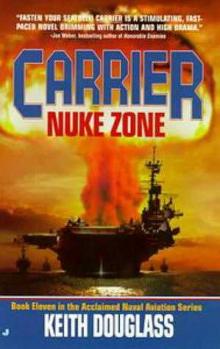 Nuke Zone c-11
Nuke Zone c-11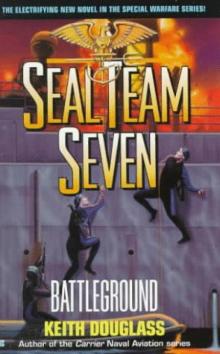 Seal Team Seven 6 - Battleground
Seal Team Seven 6 - Battleground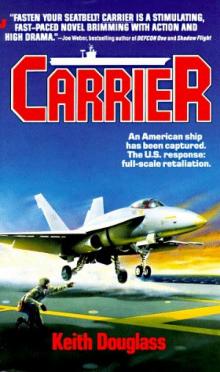 Carrier c-1
Carrier c-1 Island Warriors c-18
Island Warriors c-18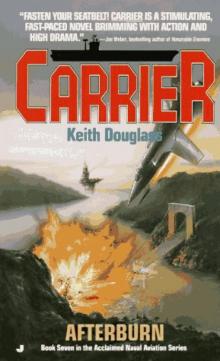 Afterburn c-7
Afterburn c-7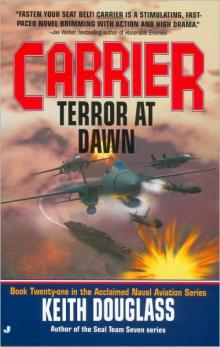 Terror At Dawn c-21
Terror At Dawn c-21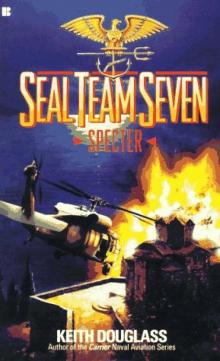 Specter sts-2
Specter sts-2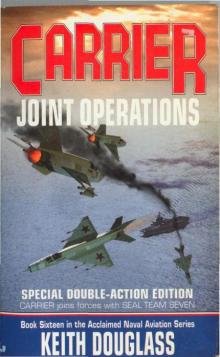 Joint Operations c-16
Joint Operations c-16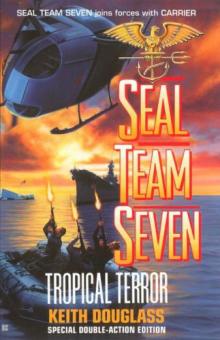 Tropical Terror sts-12
Tropical Terror sts-12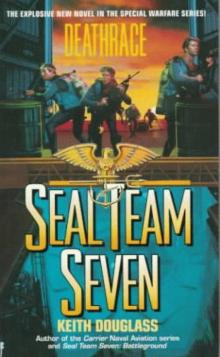 Seal Team Seven 7 - Deathrace
Seal Team Seven 7 - Deathrace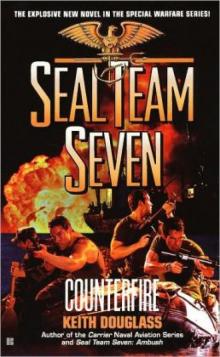 Counterfire sts-16
Counterfire sts-16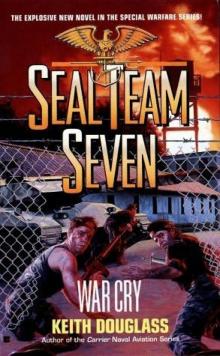 War Cry sts-9
War Cry sts-9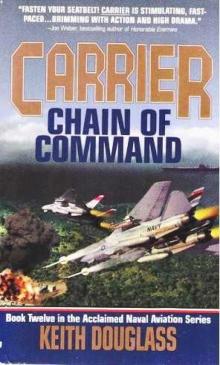 Chain of Command c-12
Chain of Command c-12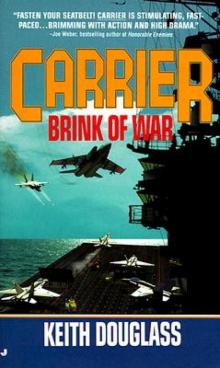 Brink of War c-13
Brink of War c-13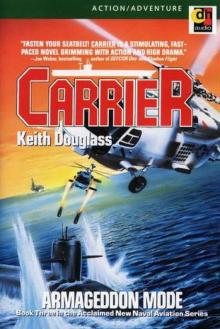 Armageddon Mode c-3
Armageddon Mode c-3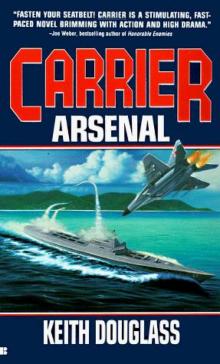 Arsenal c-10
Arsenal c-10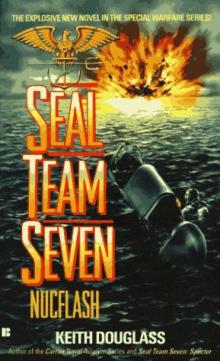 Nucflash sts-3
Nucflash sts-3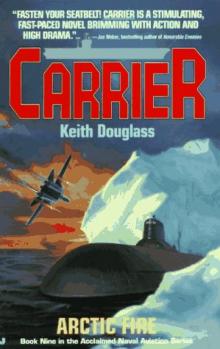 Arctic Fire c-9
Arctic Fire c-9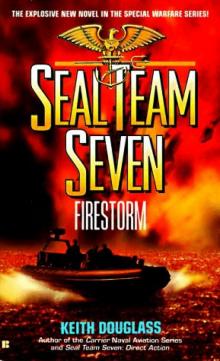 Firestorm sts-5
Firestorm sts-5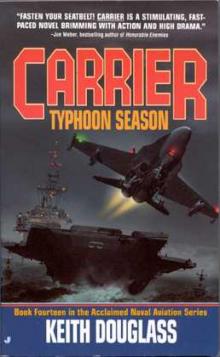 Typhoon Season c-14
Typhoon Season c-14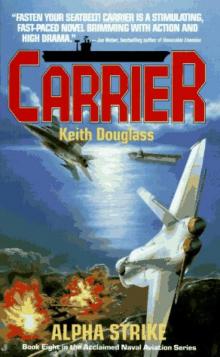 Alpha Strike c-8
Alpha Strike c-8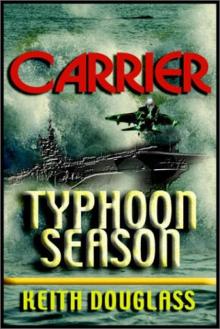 Carrier 14 - TYPHOON SEASON
Carrier 14 - TYPHOON SEASON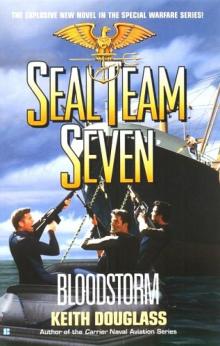 Bloodstorm sts-13
Bloodstorm sts-13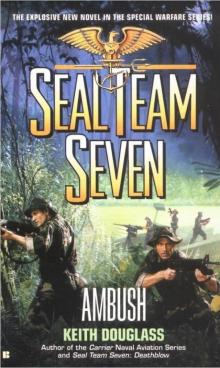 Ambush sts-15
Ambush sts-15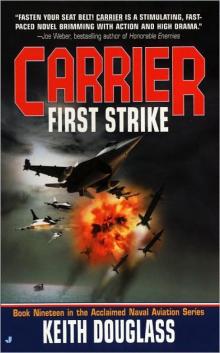 First Strike c-19
First Strike c-19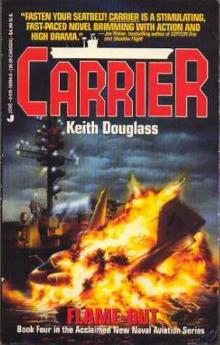 Flame Out c-4
Flame Out c-4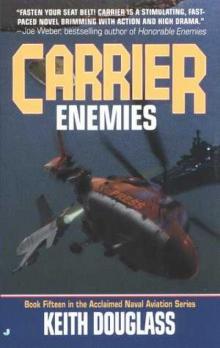 Enemies c-15
Enemies c-15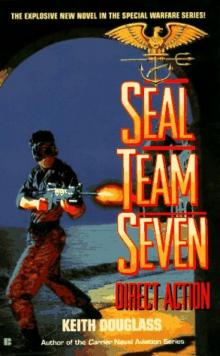 Seal Team Seven 04 - Direct Action
Seal Team Seven 04 - Direct Action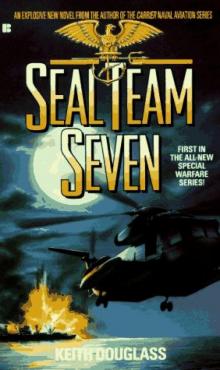 Seal Team Seven 01 - Seal Team Seven
Seal Team Seven 01 - Seal Team Seven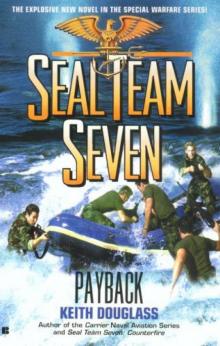 Payback sts-17
Payback sts-17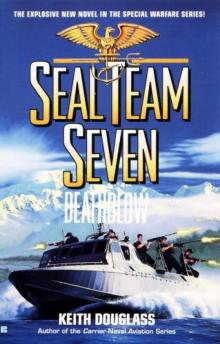 Death Blow sts-14
Death Blow sts-14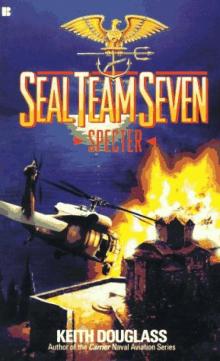 Seal Team Seven 02 - Spector
Seal Team Seven 02 - Spector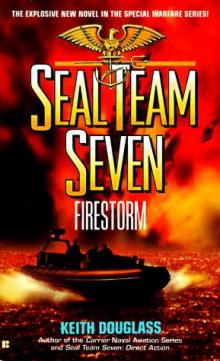 Seal Team Seven 5 - Firestorm
Seal Team Seven 5 - Firestorm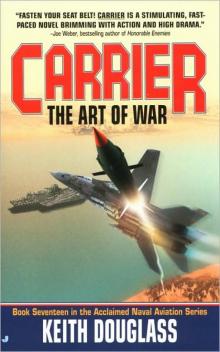 The Art of War c-17
The Art of War c-17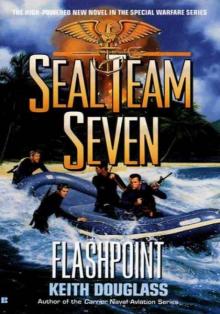 Flashpoint sts-11
Flashpoint sts-11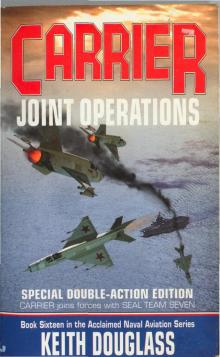 Carrier - Joint Operation Book 16
Carrier - Joint Operation Book 16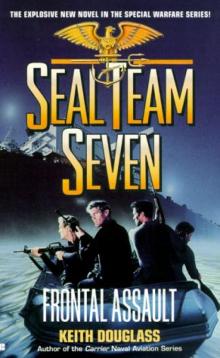 Frontal Assault sts-10
Frontal Assault sts-10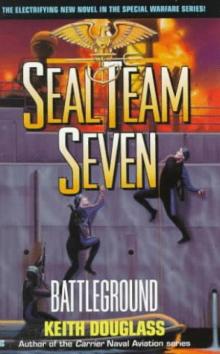 Battleground sts-6
Battleground sts-6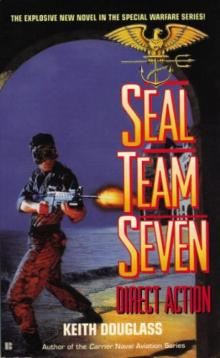 Direct Action sts-4
Direct Action sts-4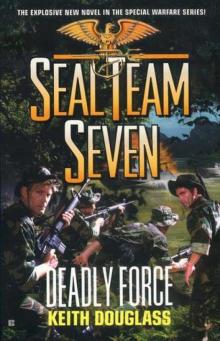 Deadly Force sts-18
Deadly Force sts-18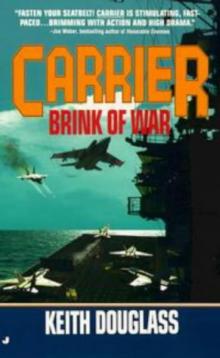 Carrier 13 - Brink of War
Carrier 13 - Brink of War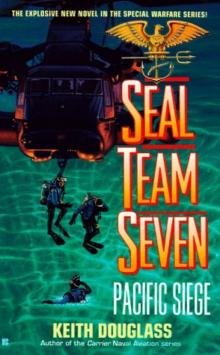 Pacific Siege sts-8
Pacific Siege sts-8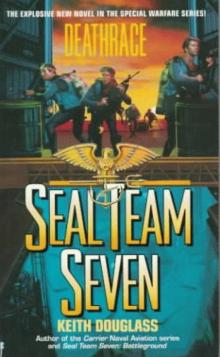 Deathrace sts-7
Deathrace sts-7